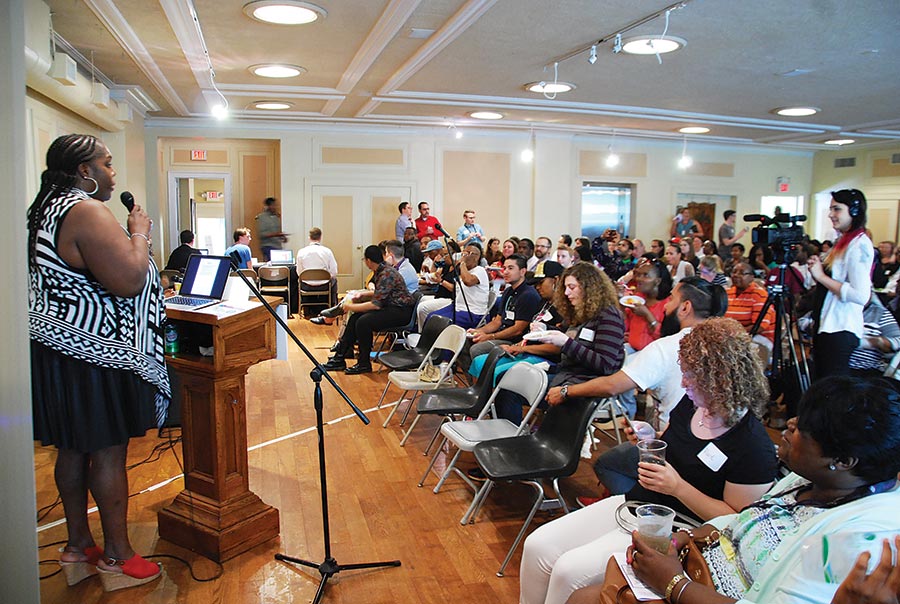A. Dionne Stallworth, founder of GenderPAC, sat on a June 2 panel for AIDS Education Month wearing a T-shirt that said, “I am black sci-fi.”
“There is extreme diversity of what trans feels like … what trans manifests as,” she said. “One of the biggest things is people find out we exist other than just as statistics and cadavers.”
Stallworth spoke at an hour-long panel called “Movements of Change,” hosted by Philadelphia FIGHT, at the William Way LGBT Community Center. FIGHT has AIDS Education Month activities planned through the rest of June.
The kickoff panel aimed to create space for black trans people to enter the conversation. It focused mostly on their lived experiences, but touched briefly on HIV/AIDS in response to an audience question at the end. About 100 people attended.
The Black and Brown Workers Collective is currently protesting FIGHT for what the group has called racist practices. But Stallworth commended FIGHT “for actually taking the time to provide a forum to discuss our issues outside of the Transgender Day of Remembrance.”
“I’ve waited 30 years for this,” she said.
Stallworth was joined on the panel by Kaleia Brown, a singer and winner of Miss Songbird of Philadelphia 2015; Najee Gibson, a fashion designer; and Ja’Nae Tyler, an HIV/AIDS advocate.
Katrina Roninson, founder of Sisters United and the police LGBT liaison committee in Philadelphia, moderated.
Tyler said the biggest thing allies can do for black trans people is to get them to the decision-making table. From there, black trans people can do the work themselves.
“We do not need you at the table for us,” she said. “We can be at the table for ourselves. We have enough representation.”
Brown remembered having to overcome challenges when she started her transition at the beginning of her recording career.
“I was told that if you transition, it’s going to be a big mistake,” she said. “People are not going to want to buy your music … You’re not going to go far. I kind of let that get in my spirit for a while.”
Ultimately, Brown decided to embrace her gender identity. She did experience some setbacks at venues where she wanted to perform. But she said she also reached many career milestones.
Gibson said they feel things will continue to improve because young trans people refuse to be invisible.
The panel members further discussed the need to bridge the gap between the older and younger generations in trans communities. They also talked about wanting to share information with the community outside of social media, which they noted can come with a negative or gossipy bent.
“We need to inject more support in the community,” Roninson said.
For more on AIDS Education Month events, visit www.aidseducationmonth.org.
